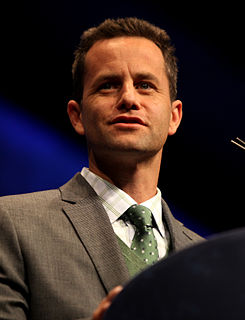A Quote by Richard Dawkins
I do object to the assumption that anything that might be outside of nature is ruled out of the conversation. That's an impoverished view of the kinds of questions we humans can ask, such as "Why am I here?", "What happens after we die?", "Is there a God?" If you refuse to acknowledge their appropriateness, you end up with a zero probability of God after examining the natural world because it doesn't convince you on a proof basis.
Related Quotes
Many of the questions we ask God can't be answered directly, not because God doesn't know the answers but because our questions don't make sense. As C.S. Lewis once pointed out, many of our questions are, from God's point of view, rather like someone asking, "Is yellow square or round?" or "How many hours are there is a mile?
Naturalism is the view that the physical world is a self-contained system that works by blind, unbroken natural laws. Naturalism doesn't come right out and say there's nothing beyond nature. Rather, it says that nothing beyond nature could have any conceivable relevance to what happens in nature. Naturalism's answer to theism is not atheism but benign neglect. People are welcome to believe in God, though not a God who makes a difference in the natural order.
Why would scientists dedicated to uncovering the truth about the natural world deliberately misrepresent the work of their own colleagues? Why would they spread accusations with no basis? Why would they refuse to correct their arguments once they had been shown to be incorrect? And why did the press continue to quote them, year after year, even as their claims were shown, one after another, to be false?
We grew up creating this whole world view for ourselves because it's not there in the culture. What am I? And I have to build this world view in the absence of books, radio and television, anything, even conversation, Mom or Dad or brother or sister or friends. I have to build a world view of who I am or I go stark, raving mad. Every transsexual in the past has had to do this.
I am not agnostic. I am atheist. I don’t think there is no God; I know there’s no God. I know there’s no God the same way I know many other laws in our universe. I know there’s no God and I know most of the world knows that as well. They just won’t admit it because there’s another thing they know. They know they’re going to die and it freaks them out. So most people don’t have the courage to admit there’s no God and they know it. They feel it. They try to suppress it. And if you bring it up they get angry because it freaks them out.
What you and I might rate as an absolute disaster, God may rate as a pimple-level problem that will pass. He views your life the way you view a movie after you've read the book. When something bad happens, you feel the air sucked out of the theater. Everyone else gasps at the crisis on the screen. Not you. Why? You've read the book. You know how the good guy gets out of the tight spot. God views your life with the same confidence. He's not only read your story...he wrote it.
The god of the world is the gold and the silver. The world worships this god. It is all-powerful to them, though they might not be willing to acknowledge it. Now it is designed, in the providence of God, that the Latter-day Saints should show whether they have so far advanced in the knowledge, in the wisdom and in the power of God that they cannot be overcome by the god of the world. We must come to that point.
The belief in God is not therefore based on the perception of design in nature. Belief in design in nature is based upon the belief in God. Things are as they are whether there is a God or not. Logically, to believe in design one must start with God. He, or it, is not a conclusion but a datum. You may begin by assuming a creator, and then say he did this or that; but you cannot logically say that because certain things exist, therefore there is a God who made them. God is an assumption, not a conclusion. And it is an assumption that explains nothing.
It is not impossible, of course, after such an administration as Roosevelt's and after the change in method that I could not but adapt in view of my different way of looking at things, that questions should arise as to whether I should go back on the principles of the Roosevelt administration.... I have a government of limited power under a Constitution, and we have got to work out our problems on the basis of law. Now, if that is reactionary, then I am a reactionary.




































